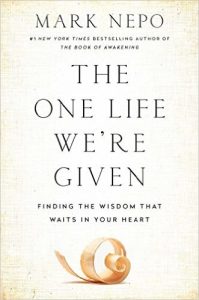 The One Life We’re Given:
The One Life We’re Given:
Finding the Wisdom That Waits in Your Heart
Here are Mark Nepo’s own words describing what he brings to his book, The One Life We’re Given, and what it can mean for you.
Through personal stories of joy and grief, of friendships and challenges, I try to illuminate how the life of the soul is shaped and crafted every day. I also offer reflective questions and meditations to help us make sense of our own experience and appreciate each moment. I’ve learned over time that throwing ourselves wholeheartedly into what we’re given brings us alive—whether we must deal with suffering, pain, fear, and loss, or surprise, beauty, love, and wonder. Each becomes an opportunity to listen more deeply to our feelings, to deepen our connection with others, and to sense the sacred nature of ordinary things. As we discover for ourselves the lessons of our journey, we are led to the wisdom that waits in our heart, the inner knowing of what truly sustains us—feeling, loving, and connecting—which allows us to fully live the one life we’re given.
from Shaped by Life
My dear father, Morris Nepo, died three years ago at the age of ninety-three. He was at his strongest and happiest when working with wood, when building things. In his basement workshop, no one could suppress his love of life and his insatiable creativity. I learned a great deal from him, though I can see now that there were many times he didn’t know he was teaching and I didn’t know I was learning. Mostly, he taught me by example that we’re called to make good use of the one life we’re given. He taught me that giving our all can lead to moments of fulfillment and grace. And those moments of full living can sustain us.
When just a boy, I watched my father chisel boards with care and precision. He kept his chisels sharp. He’d always say, “Don’t stop in mid-stroke or the board will splinter. Once you start, keep pushing all the way through.” He’d lean over the board and his hands and the chisel would become one. A thin shaving of wood would peel away, as if he’d loved the board into giving it up. He’d pick up the light shaving from the floor and rub it between his fingers. Then he’d rub the grain his effort had revealed and smile. In that moment, he seemed content, at peace. When I read Plato years later, with all his squawk about absolute forms, I knew that’s where my father went. For the moment, he seemed complete. He’d rub the smooth board one more time and drop the shaving. I loved to watch the feather of wood float to the basement floor. Looking back, I’m certain this was a moment in which he felt thoroughly immersed.
The wood shaving floating to the floor was an expression of effort turning into grace. Years later, I would feel a similar sense of completion when building things myself, and when arriving at intimacy in my relationships, after honest, loving work. Revealing the inner grain and watching the shaving float between us make us complete. Working the grain is how we love and labor, and no matter what we build or create, the shaving we chisel is the insight that lightens our load.
With his immersion in what he loved, my father showed me that throwing ourselves wholeheartedly into what we’re given brings us alive. Craftsman that he was, he left deep messages in all that he touched, some of which have only reached me now. I wish I could show him my workbench. I wish we could hammer the hot metal of our creations side by side, watching the forged shapes harden beneath their glow.
In this book, I share my story and the stories of others as examples, not instructions. For everyone has to uncover the lessons of their own journey. The word honor means to keep what is true in view. And so, we live and honor the one life we’re given by keeping what we learn in view—about ourselves, each other, and life.
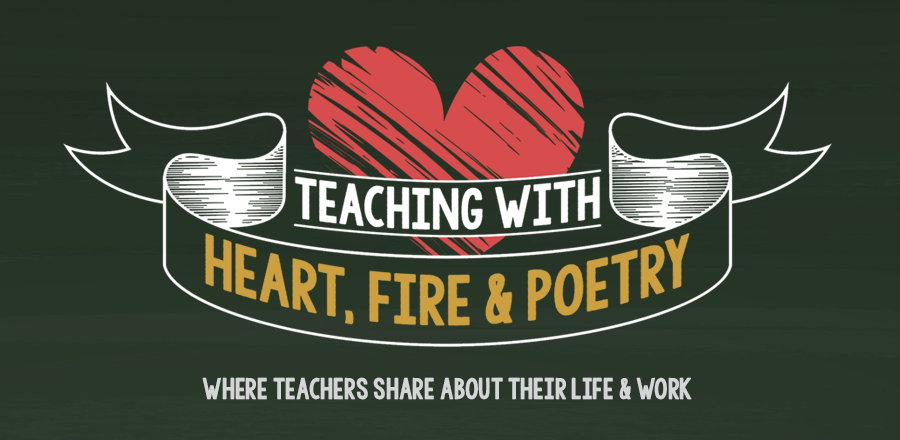
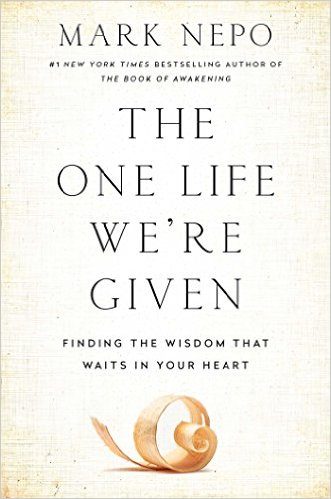
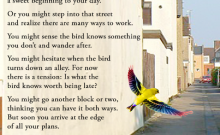



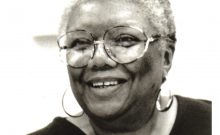
Leave a Comment